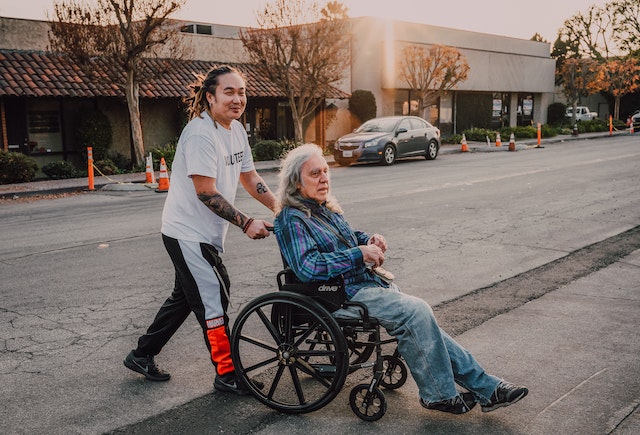7 Exclusions from Medicare
November 2, 2022People With Disabilities And Medicare
November 15, 2022Is Transportation Covered by Medicare?
Although Medicare does not cover transportation to doctor's appointments, some non-emergency transportation services may be covered in certain circumstances
Rides to routine medical appointments are generally not covered by Original Medicare, and only a few Medicare Advantage plans cover them. However, both Original Medicare and Medicare Advantage cover ambulance transportation for emergencies and certain non-emergency situations.

When Is Non-Emergency Transportation Covered By Medicare?
Rides to routine medical appointments, such as annual physicals, follow-ups, or urgent care visits, are not covered by Original Medicare. However, in some cases, Medicare Part B may cover medically necessary but non-emergency ambulance transportation, such as a ride to dialysis for a person with end-stage kidney disease.
Before you can be approved for ambulance rides, you must first obtain a letter from your doctor stating that this transportation is a medical necessity — and if approved, you are only covered for rides to and from the nearest Medicare-eligible medical facility that treats your specific condition.
If you arrange for non-emergency ambulance services that the ambulance company believes Medicare will not cover, you will receive an Advance Beneficiary Notice of Noncoverage as a warning that you may be liable for the bill. Furthermore, if you live in certain states and book three or more non-emergency round trips in a 10-day period, or at least one round trip per week for three weeks or longer, the ambulance company may request prior Medicare authorization before a fourth trip to ensure your coverage. You can also ask Medicare for prior authorization for non-emergency ambulance transportation.
What Is The Cost Of Non-Emergency Transportation With Original Medicare?
If you are approved for nonemergency transportation through Original Medicare, you must pay the $233 Medicare Part B deductible in 2022 ($226 in 2023), as well as 20% of your Medicare-approved costs.
Is Non-Emergency Transportation Covered By Medicare Advantage?
Because Medicare Advantage plans must provide the same coverage as Original Medicare, all Medicare Advantage plans must cover the same types of non-emergency ambulance transportation as Original Medicare. Because Medicare Advantage plans are provided by private insurance companies, any coverage provided in addition to Original Medicare (as well as required copays, coinsurance, and deductibles) will differ from insurer to insurer and plan to plan.
Some Medicare Advantage plans cover health-related transportation, including not only to routine medical appointments, but also to pharmacies to pick up prescriptions and, on occasion, to gyms. Depending on your Medicare Advantage plan, you may be able to use ride-sharing services (such as Lyft or Uber), taxis, or vans to get to and from appointments for a low or no copay, resulting in little or no out-of-pocket expense.
How Much Does Private Transportation Cost?
The cost of hiring a ride to a medical appointment varies greatly depending on factors such as distance, tolls, vehicle type, and whether you require special accommodations such as a wheelchair or a stretcher. Each company has its own method of calculating rates, but here's an example: A full-priced trip of about 10 miles to a local hospital in the Northeast with Lyft or Uber could cost $14-$21 each way, while travel with a private medical transportation company with required accommodations could cost $200 or more for a round trip, including wait time. If you need to hire private transportation, it is best to shop around ahead of time to find the most affordable option.
Are There Any Less Expensive Modes Of Transportation?
If your Medicare plan does not cover non-emergency medical transportation and you are unable to afford commercial rides, a number of organizations nationwide offer free or low-cost transportation.
Dial-a-ride services: Many communities provide dial-a-ride services on demand, which frequently accommodate physical disabilities and are either inexpensive or free to use. You should be aware that you may need to give up to 48 hours' notice to schedule your rides, though some areas may offer same-day service based on availability. Eligibility for dial-a-ride varies by location, so check with your local provider to ensure you're eligible before planning a trip.
•National Volunteer Transportation Center (NVTC): NVTC connects seniors with volunteer drivers and shared-ride programs that provide free rides in all 50 states and Puerto Rico. These rides may be door-to-door, depending on the providers in your area, but in some cases, your driver may be able to accompany you inside to your appointment or remain with you to provide assistance.
•The Administration for Community Living connects you with local agencies that provide transportation services for seniors through its online Eldercare Locator tool or by calling to speak with a live representative.
•The National Aging and Disability Transportation Center can help you find affordable transportation by setting up a personal phone consultation, as well as possible technical assistance and conference calls to connect you with people who have navigated similar situations.
